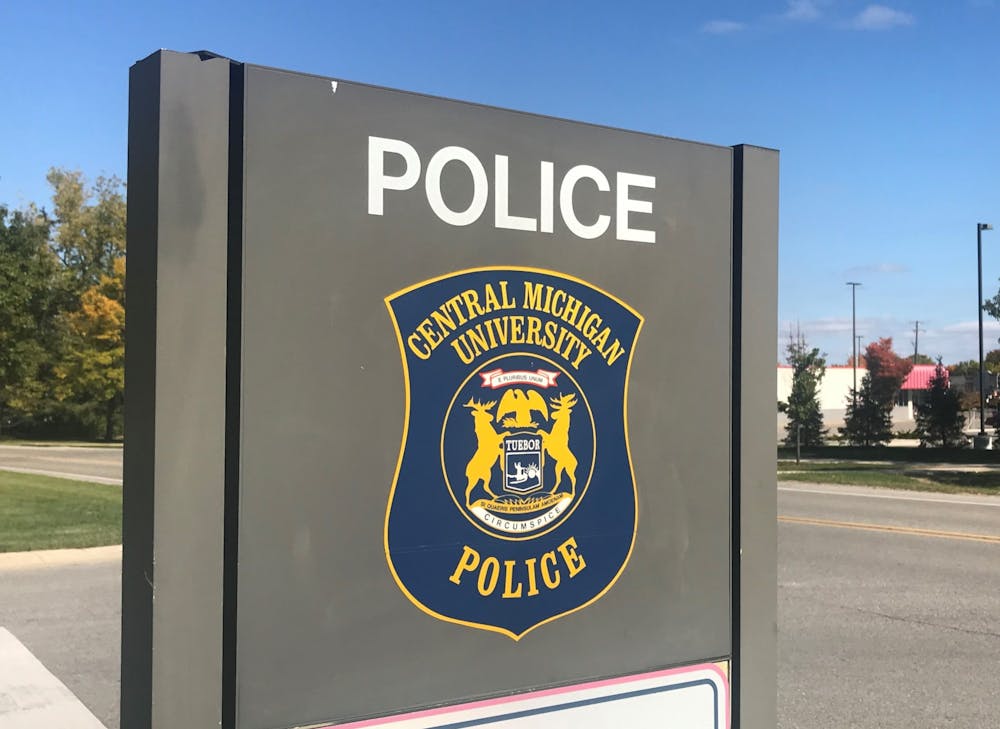CMUPD implements new policy, reconstitutes community policing
The death of George Floyd and the following national outcry sparked conversations about the role of law enforcement in the United States.
As police departments across the country are having to reckon with these demands, Central Michigan University Police Department works to implement new policies, reconstitute campus policing and invest in new equipment.
CMUPD Police Chief Larry Klaus said new initiatives have not been implemented in direct response to the Black Lives Matter movement and are part of CMUPD's commitment to the community.
Klaus said the department is continuously working to keep the campus safe, build relationships with students and foster trust within the community.
“Our policy and procedure adjustments are not in response to any particular event; rather, they were part of our ongoing efforts to implement industry best practices and meet the expectations of our community," Klaus said. "The safety of our community is our No. 1 priority and drives the decisions we make as a department."
Initiatives implemented by CMUPD:
- CMUPD changed its use-of-force policies to reflect the police reform recommendations of Gov. Whitmer. For CMUPD, this meant re-emphasizing existing policies such as prioritizing de-escalation strategies, "duty to intervene" and reporting officers who abuse power.
- As of July 2020, all CMUPD police officers have body cameras.
- For this academic year, CMUPD added a third community officer who has an office in a residence hall on campus. Their intention is to break down barriers, build trust and have positive interactions with students.
- In 2019, CMUPD added tasers as a nonlethal weapon. Klaus said their policy prioritizes de-escalation over force, but a nonlethal option is important to have in a potential conflict.
- In addition to regular mental health, implicit bias and diversity trainings, CMUPD has changed their advertising and recruiting strategy to attract more women and people of color. With the use of different publications, Klaus said they’re trying to target the reason people become police officers - especially if they’ve had bad experiences with police and want to improve the field from within.
- The CMU Police Department Oversight Committee is composed of individuals nominated and elected by students, staff and faculty. This committee reviews grievances submitted against CMUPD or specific police officers and determines the best course of action, taking recommendations to the police chief.
Klaus said these initiatives "solidify" his personal beliefs in policing and are "just the right thing to do."
"I can’t control what goes on in Chicago, in the city and the state police. All we can control is here (at CMU)," he said. "And so we’re trying to look at and put forth best practices, trying our very best to accomplish our university’s goals in diversity and inclusion."
Director of Diversity Education Nikita Murry and former Chief Diversity Officer A.T. Miller met with CMUPD this summer.
Over the course of three visits, Murry and Miller facilitated dialogue among the CMUPD staff on what it means to be a police officer and, specifically, a police officer on a college campus.
Murry, who also sits on the police oversight committee, said these meetings were mutually initiated and are part of her role in the diversity and inclusion unit.
"We talk about the CMU community (generally), but the CMU police are a part of the CMU community and the CMU family," she said. "We would not be all that we can be if we exclude a member of our family. We (would not be) equitable and inclusive, so we have to understand police and police have to understand students."
Earlier this semester, the Office of Diversity Education hosted a "Conversations that Matter" focused on whether or not law enforcement needs to change. Murry said she "couldn't have asked for anything better" from that session, which brought CMUPD and students together to share their perspectives.
For Murry and Klaus, listening, understanding and bringing in new viewpoints is of utmost importance, especially in regard to policing.
"Quite frankly, as a model, other police agencies should try to replicate what we’re doing here, (trying) to build trust and relationships with the community we police." Klaus said. "That’s what policing is -- listening to your community but also protecting and responding to your community."







